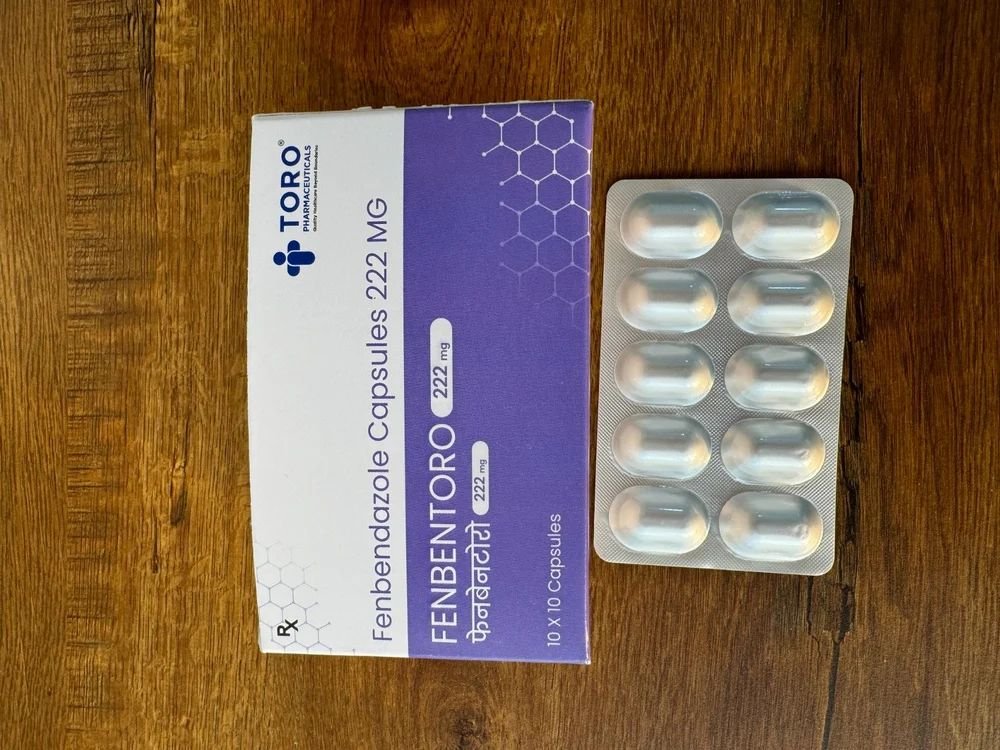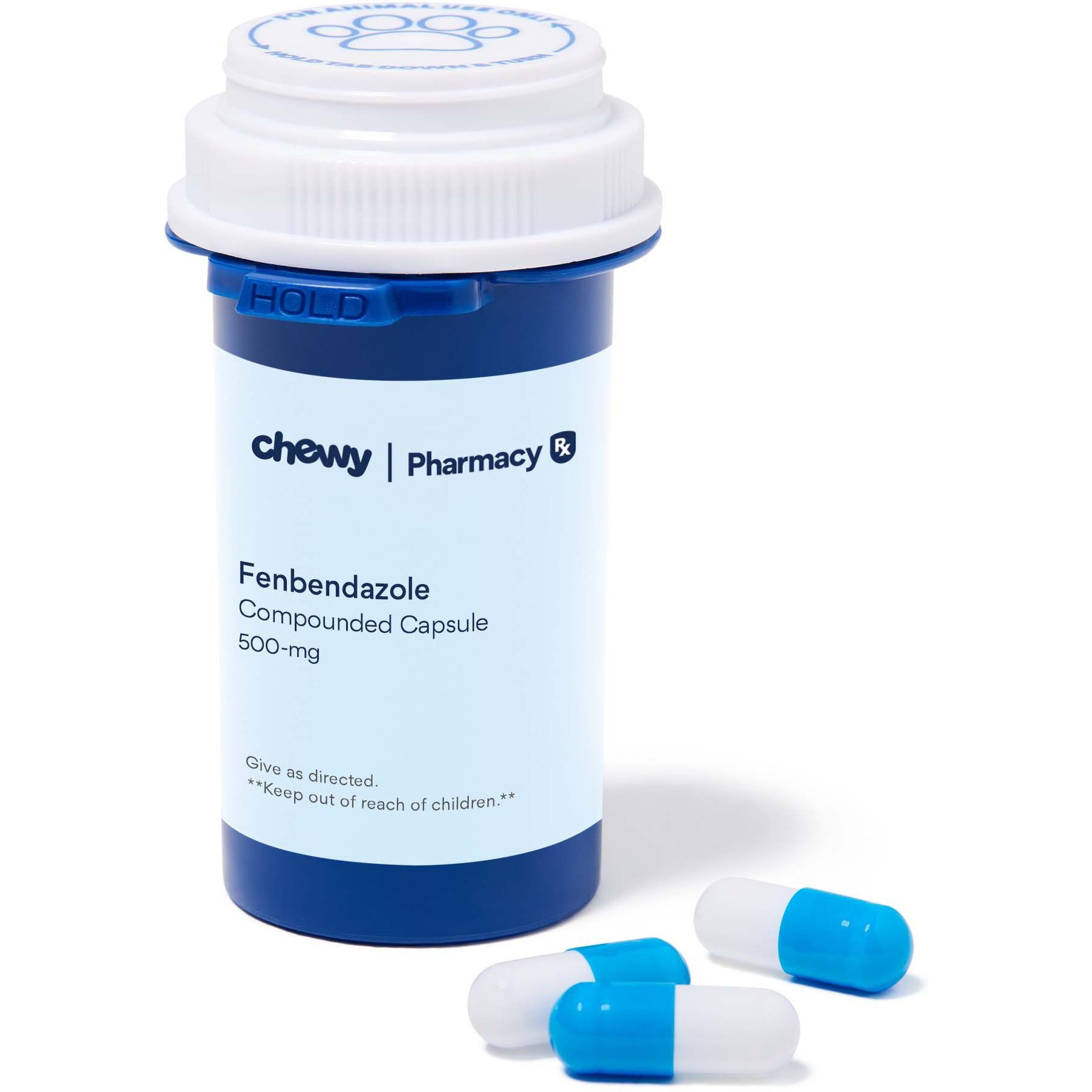fenbendazole 444: A Full Guide in Animal Care
Wiki Article
Checking out the Devices Behind Fenbendazole and Its Effect On Animal Health And Wellness
Fenbendazole is an extensively used anthelmintic known for its effectiveness against different bloodsuckers. Its key mechanism involves the inhibition of microtubule formation, which interrupts essential processes in these pathogens. Beyond its antiparasitic residential properties, fenbendazole also shows up to boost immune actions and has anti-inflammatory benefits. Recognizing these multifaceted impacts can reveal brand-new applications for pet health. Concerns continue to be regarding its full capacity and safety account.The Pharmacokinetics of Fenbendazole
The pharmacokinetics of fenbendazole, an extensively used anthelmintic in veterinary medicine, includes the research study of its absorption, circulation, metabolic process, and discharging within pet systems. After administration, fenbendazole is rapidly taken in from the stomach system, with peak plasma focus occurring within hours. Its circulation is affected by aspects such as cells binding and lipid solubility, permitting it to pass through various tissues effectively. The medication goes through considerable metabolism primarily in the liver, where it is exchanged energetic and non-active metabolites. These metabolites play a function in the drug's overall efficiency and safety and security profile. Excretion occurs largely through feces, with a smaller percentage gotten rid of through pee. The half-life of fenbendazole differs among species, which influences dosing regimens. Understanding these pharmacokinetic buildings is crucial for maximizing its therapeutic use and ensuring reliable bloodsucker control in vet techniques.Systems of Action Against Bloodsuckers
Fenbendazole exerts its antiparasitic effects primarily via the inhibition of microtubule development in bloodsuckers. This interruption affects their architectural honesty and mobile functions, causing impaired power metabolic process. Consequently, the medicine effectively compromises the survival and recreation of different parasitical organisms.Restraint of Microtubule Formation
Inhibition of microtubule development represents a critical system whereby certain anthelmintic representatives, including fenbendazole, exert their impacts on parasites. Fenbendazole binds to tubulin, a healthy protein that develops microtubules, interfering with the polymerization process necessary for microtubule assembly. This interruption harms vital mobile functions, consisting of mitosis, intracellular transport, and architectural stability. As microtubules play a vital role in preserving the form and function of parasitic cells, their restraint causes cell cycle arrest and eventual fatality of the bloodsucker. This device is particularly efficient versus nematodes, as their reliance on microtubules for mobility and nutrient absorption makes them vulnerable to fenbendazole. Subsequently, the inhibition of microtubule development is a vital facet of fenbendazole's healing efficacy in veterinary medication.Interruption of Basal Metabolism
Interfering with power metabolism is another crucial system whereby fenbendazole targets parasitic organisms. This anthelmintic alters the power manufacturing paths within parasites, mainly impacting their capacity to create adenosine triphosphate (ATP) By hindering sugar uptake and interfering with mitochondrial feature, fenbendazole restrictions the power sources important for the survival and reproduction of these organisms. As an outcome, bloodsuckers end up being progressively susceptible to environmental stresses and immune feedbacks. The disturbance in power metabolic process not just impacts the parasites straight but likewise decreases their capacity to absorb nutrients, additionally hindering their development - fenbendazole capsules. Overall, the disturbance of basal metabolism represents a basic element of fenbendazole's effectiveness against numerous parasitical infections, contributing greatly to boosted animal health end resultsProspective Negative Effects and Safety And Security Account
The prospective negative effects and safety and security profile of fenbendazole warrant mindful factor to consider, especially in veterinary applications. While usually considered as risk-free, some pets may experience unfavorable responses, including gastrointestinal disturbances such as vomiting and looseness of the bowels. Furthermore, neurological signs, although rare, have been reported in delicate individuals, highlighting the demand for tracking throughout treatment.
Fenbendazole's security in numerous types, consisting of pet dogs and felines, has been documented, but dosage and duration of therapy have to be thoroughly managed to lessen dangers. Expecting or lactating pets may likewise need special interest, as the effects on developing unborn children or nursing spawn are not fully understood.
Routine vet consultations can aid mitigate potential side effects and guarantee the drug is administered appropriately. Consequently, while fenbendazole is an efficient anthelmintic agent, watchfulness regarding its adverse effects is vital for preserving animal health.

Fenbendazole's Impact on Immune Feature
Fenbendazole has been noted for its potential to modulate immune system feedbacks in animals. Its anti-inflammatory homes may add to boosted immune function, offering a dual advantage in handling wellness (fenbendazole). Understanding these results is necessary for assessing fenbendazole's role in vet medicationBody Immune System Inflection

Anti-inflammatory Qualities
Anti-inflammatory results stand for a substantial facet of fenbendazole's impact on immune feature. Research study suggests that fenbendazole may decrease the production of pro-inflammatory cytokines, which are critical in mediating inflammatory actions. By regulating these cytokines, fenbendazole can possibly ease inflammation-related problems in animals. This anti-inflammatory action not only help in handling signs connected with numerous diseases but also improves general body immune system effectiveness. Furthermore, its capacity to advertise a well balanced immune action assists prevent extreme inflammatory damage, which can lead to persistent wellness problems. Fenbendazole's duty in inflammation management emphasizes its value in veterinary medicine, giving a dual benefit of antiparasitic activity and immune system assistance for animal wellness.Applications Beyond Traditional Parasitical Infections
While primarily identified for its efficiency against different parasitic infections, fenbendazole has actually garnered focus for prospective applications past this conventional extent. Recent researches suggest that fenbendazole might have helpful effects on mobile health and wellness and immune reaction, making it an interesting prospect for managing various other health problems in pets. Its reported anti-inflammatory homes might supply alleviation for animals suffering from persistent inflammatory diseases. Additionally, some research study indicates that fenbendazole might play a function in sustaining the total health of animals by enhancing nutrient absorption and stomach wellness. Its possible as an adjunct treatment in cancer therapy has actually sparked rate of interest, as Going Here initial searchings for recommend it could hinder growth cell development in particular contexts. These diverse applications highlight fenbendazole's versatility, motivating additional expedition right into its complex advantages for pet wellness beyond its standard use as a deworming agent.Future Research Study Directions and Implications for Animal Health And Wellness
The exploration of fenbendazole's potential applications has opened up brand-new opportunities for study targeted at improving pet wellness. Future research studies might concentrate on its performance versus a more comprehensive array of virus, consisting of germs and infections, thereby increasing its duty in veterinary medication. The implications of fenbendazole's mechanisms, such as its influence on immune inflection, warrant further investigation to recognize just how it can boost total health and wellness in various types.Furthermore, research study may check out optimal does and formulas to maximize efficacy while reducing possible adverse effects. Exploring fenbendazole's synergistic effects with various other medications can result in extra reliable treatment methods. Longitudinal research studies reviewing lasting outcomes in pets treated with fenbendazole might supply valuable understandings into its safety and security and effectiveness. Overall, the ongoing exploration of fenbendazole provides promising possibility to enhance animal wellness, requiring a collaborative method amongst scientists, veterinarians, and pharmaceutical developers to help with advancements in this location.
Frequently Asked Concerns
Can Fenbendazole Be Utilized in Animals for Bloodsucker Avoidance?
The question of whether fenbendazole can be utilized in animals for bloodsucker prevention matters, as manufacturers look for effective therapies (fenbendazole 222). Research indicates it may supply advantages, but appropriate standards and veterinary recommendations are necessary for safe usageWhat Is the Suggested Dose of Fenbendazole for Various Animals?

Exist Any Type Of Recognized Medicine Interactions With Fenbendazole?
Current knowledge shows that fenbendazole might communicate with certain medicines, potentially affecting their efficacy or metabolic process. Vet professionals recommend talking to a veterinarian to analyze private pet cases and identify any kind of possible interactions before administration.Exactly How Does Fenbendazole Compare to Other Antiparasitic Medicines?
Fenbendazole is often compared to various other antiparasitic drugs based upon efficacy, spectrum of task, and security accounts. It is favored for its efficiency versus a wide variety of bloodsuckers while generally showing minimal adverse effects in animals.Is Fenbendazole Effective Against Viral or Microbial Infections in Animals?
The effectiveness of fenbendazole against viral or microbial infections in pets remains unproven. Research mainly concentrates on its antiparasitic buildings, with minimal proof sustaining any type of duty in treating non-parasitic infections in vet medication.Report this wiki page